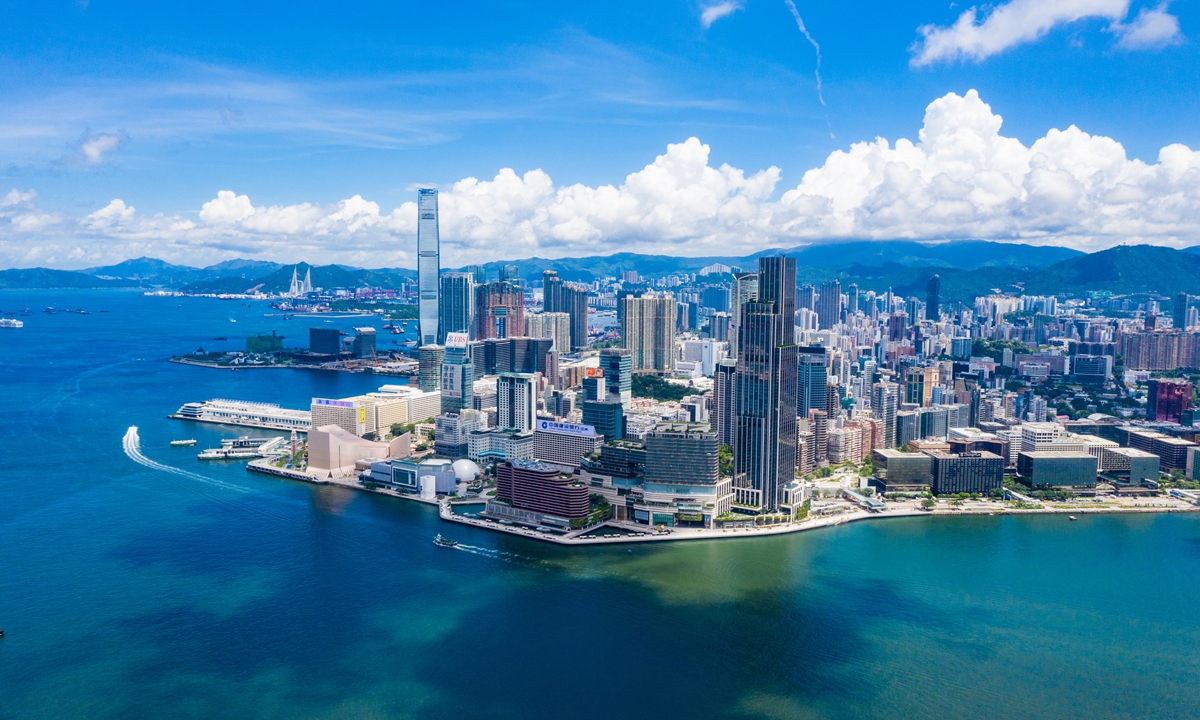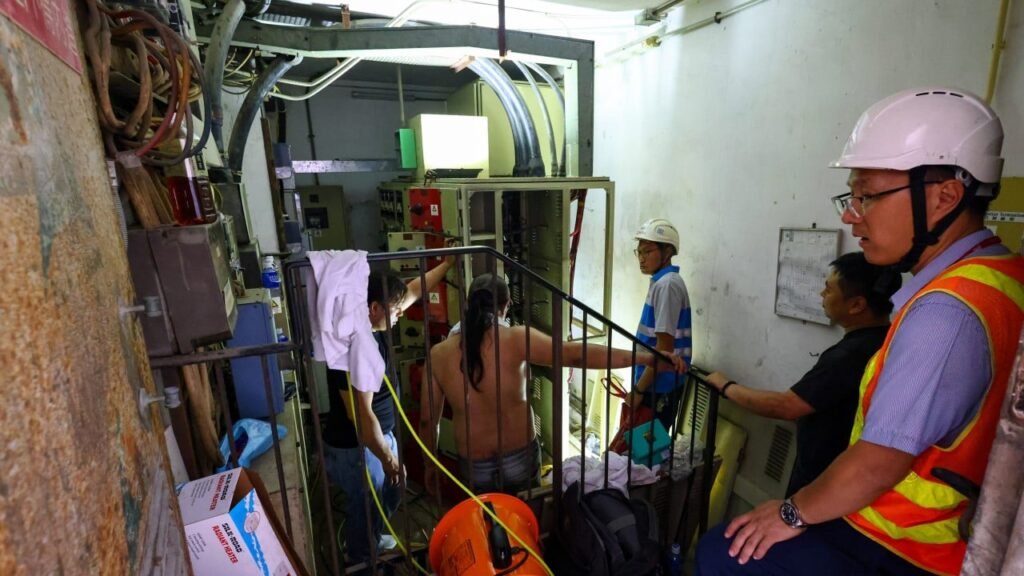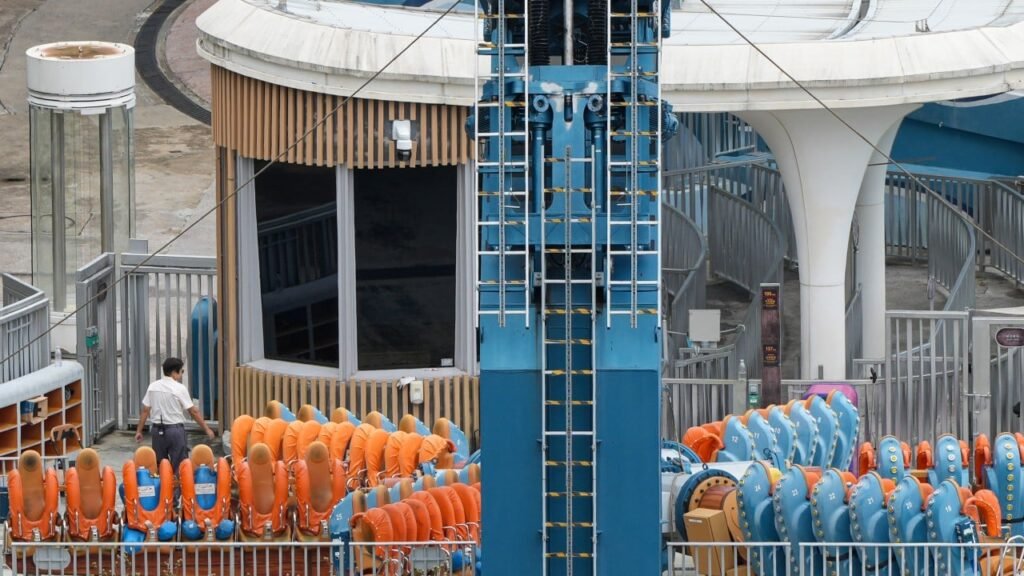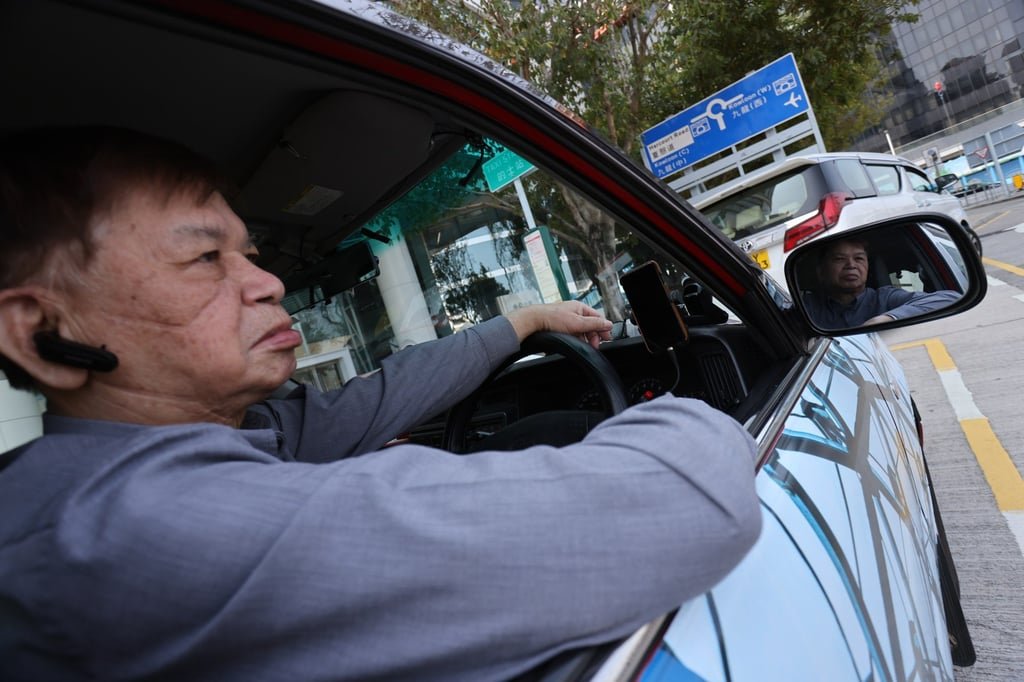
A view of Kowloon City, Hong Kong Photo: VCG
As of the end of July, the number of local companies registered in the Hong Kong Special Administrative Region (HKSAR) exceeded 1.5 million, and the number of non-Hong Kong companies registered in the city surpassed 15,000, both hitting record highs, John Lee Ka-chiu, chief executive of the HKSAR, said on Sunday.
In a social media post, Lee emphasized that the HKSAR continues to attract high-quality companies from home and abroad to settle or expand their businesses in Hong Kong, boosting the local economy and increasing employment opportunities.
From January 2023 to July 2025, Invest Hong Kong (InvestHK), the investment promotion agency of the HKSAR, assisted 1,333 companies in setting up or expanding operations in the region and created more than 19,000 new jobs. The agency also attracted HK$174 billion ($22.2 billion) in first-year direct investment, said Lee on his Facebook account.
“Facing complex and shifting geopolitical challenges and new trade patterns, we will not halt our investment attraction efforts; instead, we will proceed with greater stability and speed, injecting more momentum into the local economy. Beyond the Middle East countries and ASEAN, we will continue to explore other promising emerging markets,” said Lee.
In addition to investment attraction, the chief executive has also addressed other topics in his Policy Address, including the HKSAR’s policy efforts in the tourism sector and financial and stock markets, in his previous social media posts.
The HKSAR government launched public consultation for the chief executive’s 2025 Policy Address in June. Lee will deliver his fourth Policy Address this September, according to a news release on the HKSAR government’s website.
In a video clip associated with the Sunday post, Lee highlighted Hong Kong’s unique dual-platform role, enabling it to attract foreign investment for business expansion and access to the Chinese mainland market, while also helping mainland companies venture overseas. “Many foreign companies have found business opportunities in Hong Kong and are expanding. Many mainland companies, trusting Hong Kong’s capabilities, are collaborating with the ‘Hong Kong team’ to explore emerging markets overseas,” Lee said in the video.
Analysts said that the HKSAR is a two-way springboard connecting the Chinese mainland and the world, which also fuel the city’s growth.
On Sunday, HKSAR Financial Secretary Paul Chan Mo-po also stated that the current HKSAR government is actively attracting investment and talent, with related efforts accelerating.
For instance, the InvestHK office has so far attracted 84 leading enterprises in frontier technologies, which are expected to bring approximately HK$50 billion in investment to Hong Kong over the coming years, while creating more than 20,000 jobs, and utilizing a total of 1.68 million square feet of innovation, industrial, and commercial space, Chan wrote in a blog post published on the HKSAR Financial Secretary’s website.
Beyond the four key areas of artificial intelligence and big data, life sciences, fintech, and new energy and advanced manufacturing, InvestHK will also attract enterprises combining innovation and cultural creativity, which is expected to further boost the development of Hong Kong’s creative and cultural industries, said Chan.
“Hong Kong has the advantage of connecting the world. While local and mainland enterprises take advantage of this platform to go global, they also promote the HKSAR’s professional services as well as the country’s standards and technical services to the world,” Chan wrote.
Amid economic transformation, Lee also urged businesses to innovate with creative services and products, leveraging online-offline marketing to meet market preferences. “Hong Kong’s stable and high-potential consumer market serves as a testing ground for overseas firms eyeing the Chinese mainland,” said Lee.
Innovative technology provides a solid foundation for Hong Kong to develop new quality productive forces. By leveraging technological innovation to drive industrial upgrades, Hong Kong can further gain a competitive advantage, Wang Peng, an associate research fellow at the Beijing Academy of Social Sciences, told the Global Times on Sunday.
Analysts also pointed out that financial services, a pillar industry of Hong Kong, will be a crucial part in supporting the development of innovative technology. This can be seen from the influx of funds to Hong Kong’s stock market, especially the technology sector, this year.
The Hang Seng TECH Index, representing the 30 largest technology companies listed in Hong Kong, has performed notably well this year, reflecting the capital market’s confidence in technology firms listed in Hong Kong, Yang Delong, chief economist at the Shenzhen-based First Seafront Fund, told the Global Times on Sunday.
“In addition to substantial foreign investment in Hong Kong stocks, demand from mainland investors to allocate funds to Hong Kong stocks has surged, with southbound funds recording net purchases for more than 20 months,” said Yang.
Wang also noted that financial services will remain one of the key areas of cooperation between Hong Kong and the mainland.








